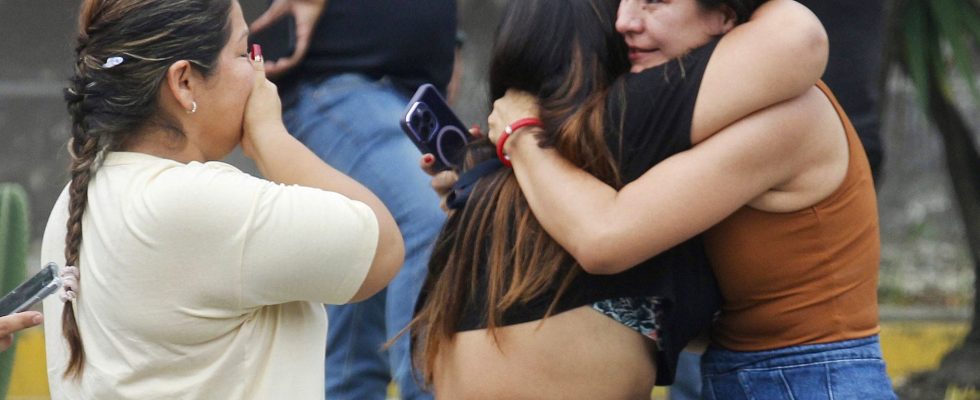The country is at “war” against drug trafficking gangs. The prosecutor in charge of the investigation concerning the irruption of armed men live on the set of an Ecuadorian public television channel, on January 9, was assassinated on Wednesday January 17, while the country is under the regime of emergency state. According to the prosecution, the murdered prosecutor in Guayaquil (southwest) was responsible for determining which gang had carried out this assault. In the photos obtained by AFP, we see several bullet holes which passed through the driver’s side side window, although it was apparently armored.
“In response to the murder of our colleague César Suarez […] I will be categorical: organized crime groups, criminals and terrorists will not stop our commitment to Ecuadorian society,” Attorney General Diana Salazar said in a video posted on X. Defense Minister Gian Carlo Loffredo said declared in a statement that his government rejected “any form of violence as a response to the conflict we are experiencing. “We reaffirm the government’s firm commitment to supporting the administration of justice,” he added.
The very spectacular images of the live eruption of heavily armed, hooded men, pinning journalists and employees of the TC channel in Guayaquil to the ground under threat had gone around the world. “They came in to kill us, my God protect us,” one of the captive journalists told an AFP correspondent in a WhatsApp message. Complaints were audible in the background. Amid the gunfire, the broadcast of these surreal images continued live for several minutes, despite the lights on the set going out and the camera freezing. The rapid intervention of the police made it possible to put an end to the hostage-taking without causing any casualties and to arrest thirteen attackers.
“I was struck by their inexperience,” one of the journalists taken hostage told AFP. “Deep down, they were just kids.” This is confirmed by the presentation to the press of the members of the group arrested and handcuffed. According to authorities, they are aged between 16 and 25. Some images remain in memory: the signs made in front of the camera by the attackers bragging to claim their gangs, or the shotgun placed on the head of an unfortunate reporter.
More than 20,000 soldiers on the ground
This assault on a television set constituted a climax in the chain of violence triggered by the escape a few days earlier of the feared leader of the Choneros gang, Adolfo Macias, alias “Fito”. Several mutinies and hostage-taking of guards affected prisons, and in the streets of Guayaquil or the capital Quito, gangs sowed terror with explosions or shots aimed at the police. Ecuadorian President Daniel Noboa, elected in November on the promise of restoring security, declared the country “at war” against gangs and sent more than 20,000 soldiers to the field. According to the local daily Expresso, muscular controls continue and the toll of military operations carried out against the gangs increases day by day. In total, more than 1,500 people were arrested and seven died, including two police officers. Among the victory obtained by the government: the release of the 133 prison guards held for six days by inmates.
How did we get here ? Since Ecuador established itself as the main export point for cocaine produced in neighboring Peru and Colombia, street gangs have transformed into bloody players in drug trafficking with an international network. Prosecutors are under threat from the twenty or so criminal organizations operating in Ecuador, once a haven of peace ravaged by violence after becoming the main export point for cocaine produced in the neighboring states of Peru and Colombia. . In June, prosecutor Leonardo Palacios was killed by gunmen in the town of Duran, neighboring Guayaquil. Diana Salazar reported direct death threats from Los Lobos, one of the main criminal organizations, whose leader, Fabricio Colon Picole, also escaped from prison last week.
Ecuadorian justice attacks criminals but also corruption linked to drug trafficking which has corrupted even the arcana of the State. The so-called “Metastasis” affair, “the biggest in history against corruption and drug trafficking” in Ecuador, according to the prosecutor, revealed at the end of last year “a criminal structure” involving prosecutors , prison officials and police officers “whose objective was to obtain impunity and freedom for those prosecuted or convicted” as well as to introduce prohibited objects into prison. Politicians are also targeted. At the end of 2023, presidential candidate Fernando Villavicencio in Quito and Agustin Intriago, mayor of Manta (west), one of the country’s main cities, were also killed by criminals.
